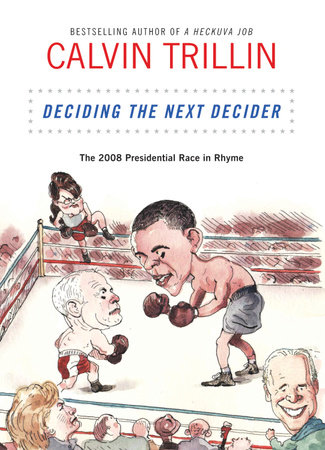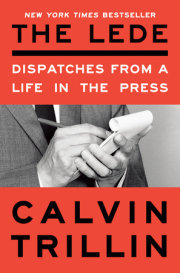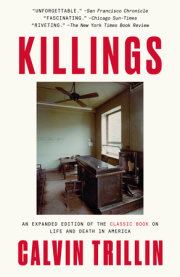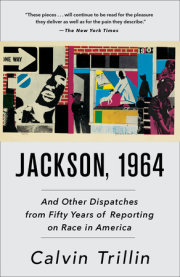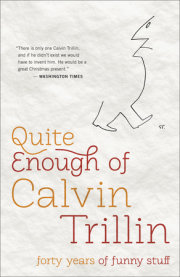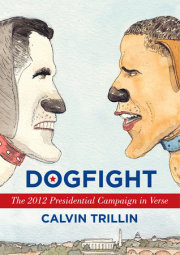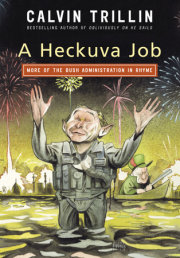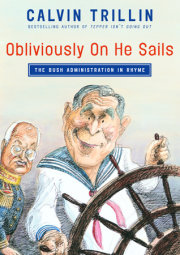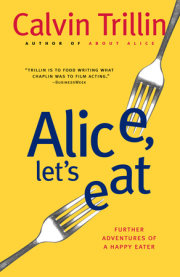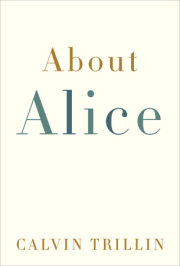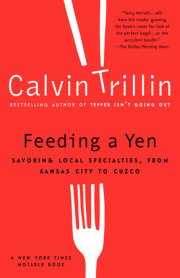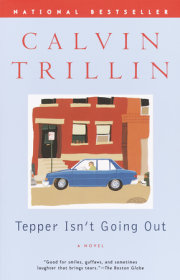1
Let the Games Begin
Whatever problems Washington is facing,
Campaigning is what gets its blood a-racing.
Before the ’06 midterm vote was in,
The top consultants there began to spin
Scenarios about that vote and why
It showed ’08 was natural for their guy.
But as the midterm voting day drew near,
The GOP began to have some fear
That they’d be beaten right across the nation.
Here’s how the press surmised the situation:
The Bush economy is out to sea,
And scandals now have rocked the GOP.
Its leadership had known for quite a while
They harbored there on their side of the aisle
A person who for absolutely ages
Was sending come-on notes to teenage pages.
And Bush’s war, still raging unsubsided?
It’s clear by now that voters have decided
His war’s a crime—and as the leading perp he’s
About as high up in the polls as herpes.
The GOP felt land about to slide—
An attitude Karl Rove could not abide.
Republicans will triumph, Rove insisted.
Had he hatched plots, nefarious and twisted?
But Rove was wrong. The midterm was a rout.
Whatever that election was about,
Whichever words Bush used as a disclaimer,
This lame duck president was now much lamer.
He said he’d work with Democrats once more.
That’s sort of what he’d said six years before—
Before, that is, he saw himself as Thor
Destroying evil in a holy war.
He tried to reestablish some rapport
By showing Donald Rumsfeld out the door.
Though many found Don Rumsfeld’s exit pleasing,
Approval ratings stayed well south of freezing.
So Bush was done, observers would contend:
His term had ended long before the end.
Within just weeks, the presidential story
Was whose committees were exploratory.
And bloggers speculated who might join
Newt Gingrich, spotted lurking in Des Moines,
Where Edwards had so often paid a call
He’d almost lost his Carolina drawl.
And others were beginning to remember
The beauty of a cornfield in December.
The Democrats said what we need is change
From Bush. Well, sure, but here is something strange:
Republicans themselves could not ignore
Katrina and the wretched, endless war.
A lot of them—with some regrets, it’s true—
Now seemed inclined to run against him too.
We Got Those Wall-to-Wall 24/7 Damage-Control Blues
(As sung by the Bush Administration’s Down Home Singers)
They leaked that NIE that said Iraq’s
Producing terrorists and such in stacks,
So even winning sort of means to lose.
We got those wall-to-wall 24/7 damage-control blues.
Then Woodward writes that Bush is bubble boy—
As clueless as those dudes defending Troy—
And Rumsfeld is a Queeg with shortened fuse.
We got those wall-to-wall 24/7 damage-control blues.
Then Foley’s creepy messages appear,
And Dennis Hastert’s known for a year,
So he can’t claim the leaders had no clues.
Iraq each day brings worse, more violent news.
If we can’t find some gays to bash, we’ll lose.
This stuff could drive the boss man back to booze.
We got those wall-to-wall 24/7 damage-control blues.
One Possible Explanation for Karl Rove’s Confidence About the Midterm Elections
One simple stroke by Rove could yet erase
The burdens that the GOP has carried:
They’d simply say they’d foiled a bombing plot
By two gay Muslims who had just been married.
An Opponent of the War Attempts to Say Farewell to Donald Rumsfeld with at Least a Modicum of Courtesy
The killing in Iraq’s gone on this long
Because you think the strong can’t say they’re wrong.
To be so wrong so often is a curse,
But being arrogantly wrong is worse.
Still, briefings were a hoot. Our favorite feature?
That tone—exactly like a third-grade teacher
Explaining math to those forevermore
Too slow to get promoted to grade four.
So may you find, as down life’s road you’re wending,
More folks to whom you’re always condescending.
After Tuning in to the Sunday Talk Shows
to See What the Sabbath Gasbags Have to Say
They talk of nothing but ’08
And who’ll emerge triumphant when
The voting booths are finally closed.
But what are we to do ’til then?
Copyright © 2008 by Calvin Trillin. All rights reserved. No part of this excerpt may be reproduced or reprinted without permission in writing from the publisher.

